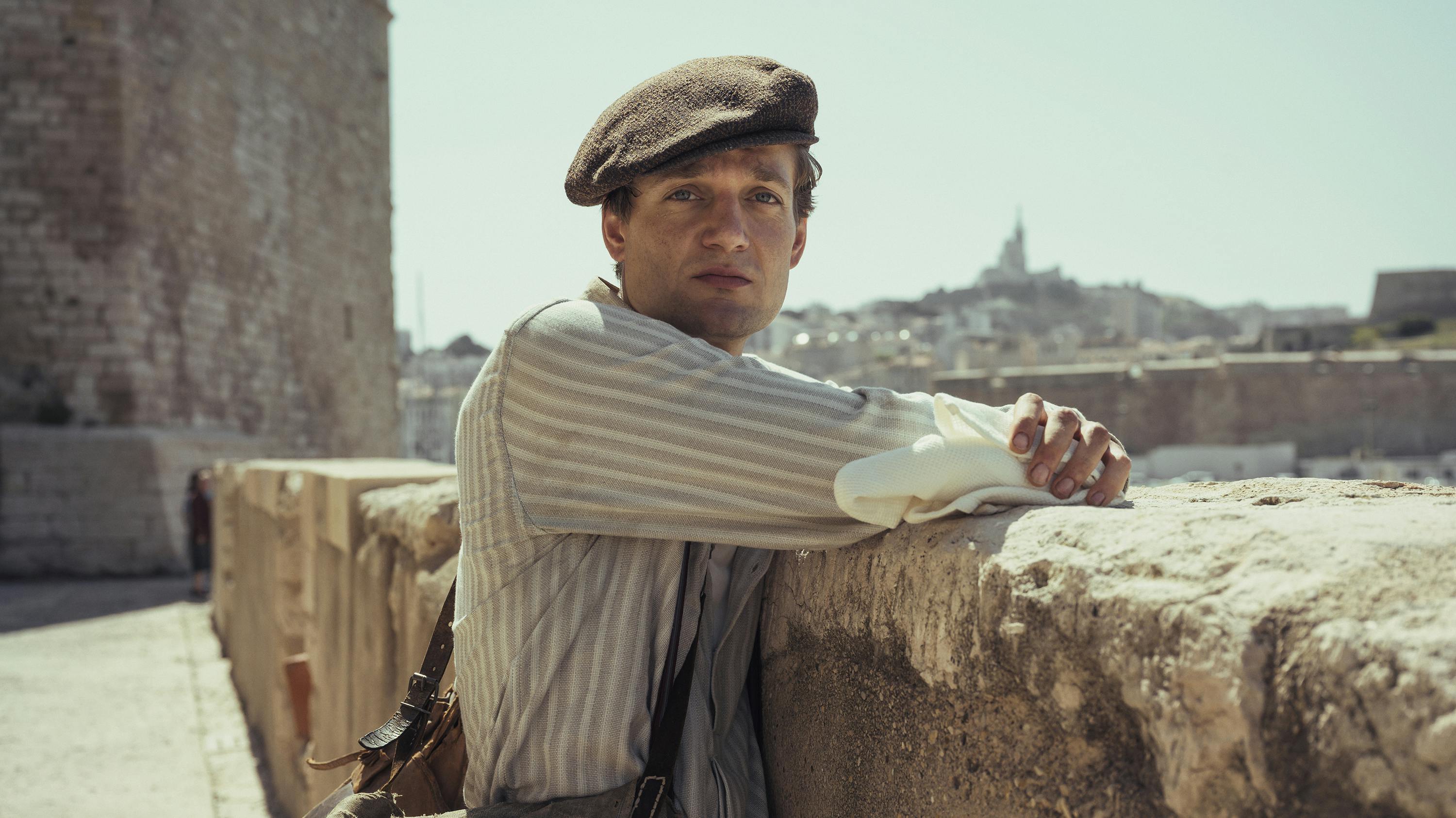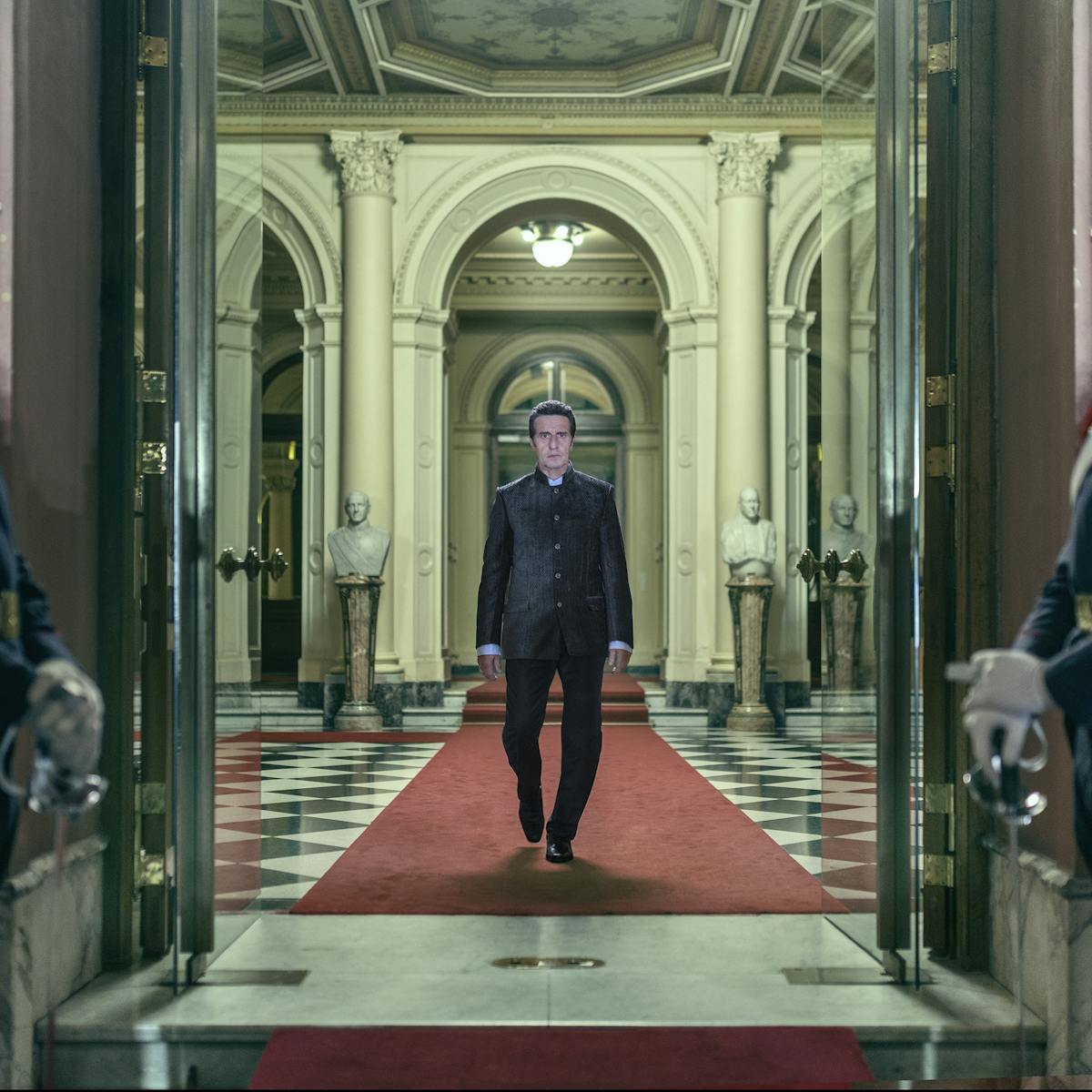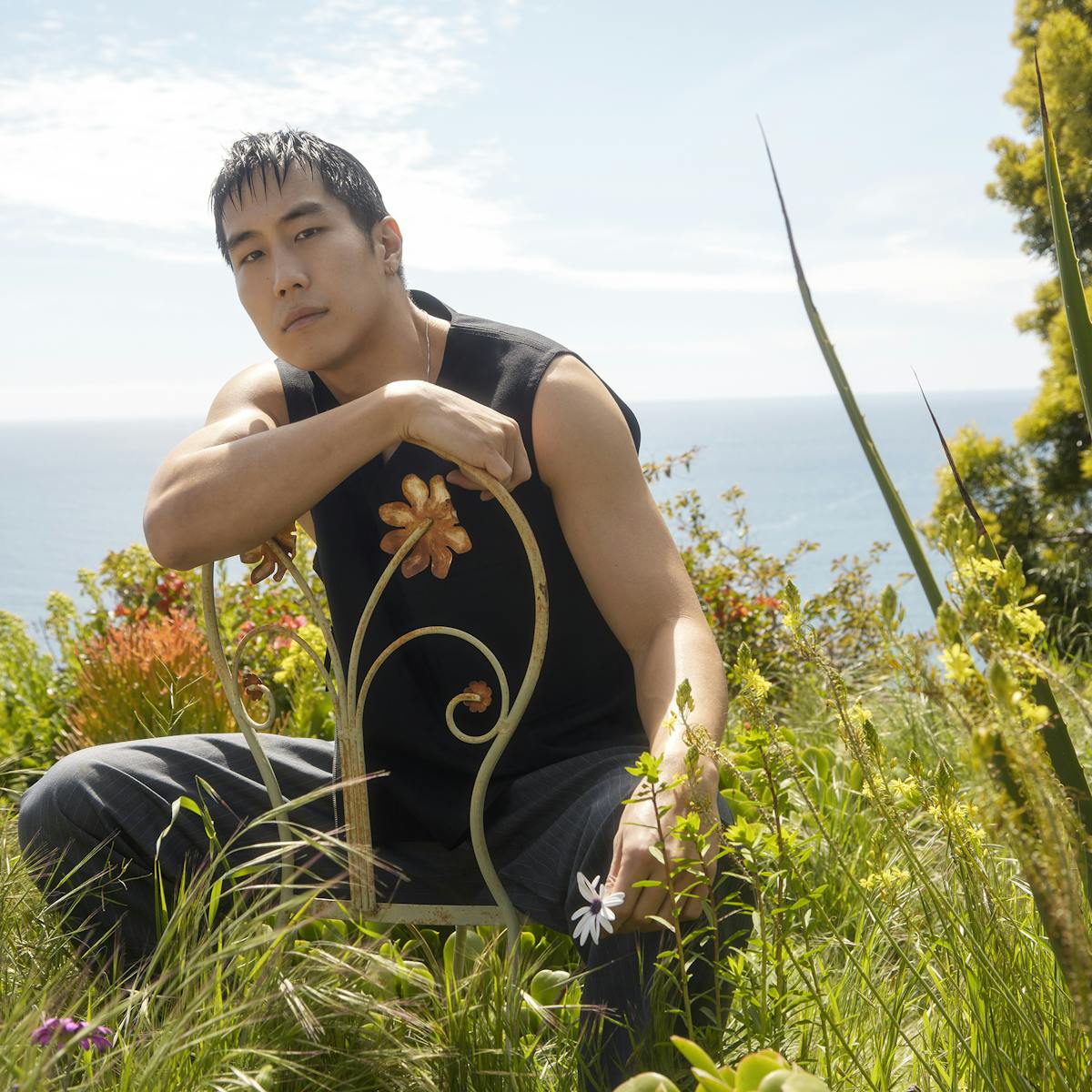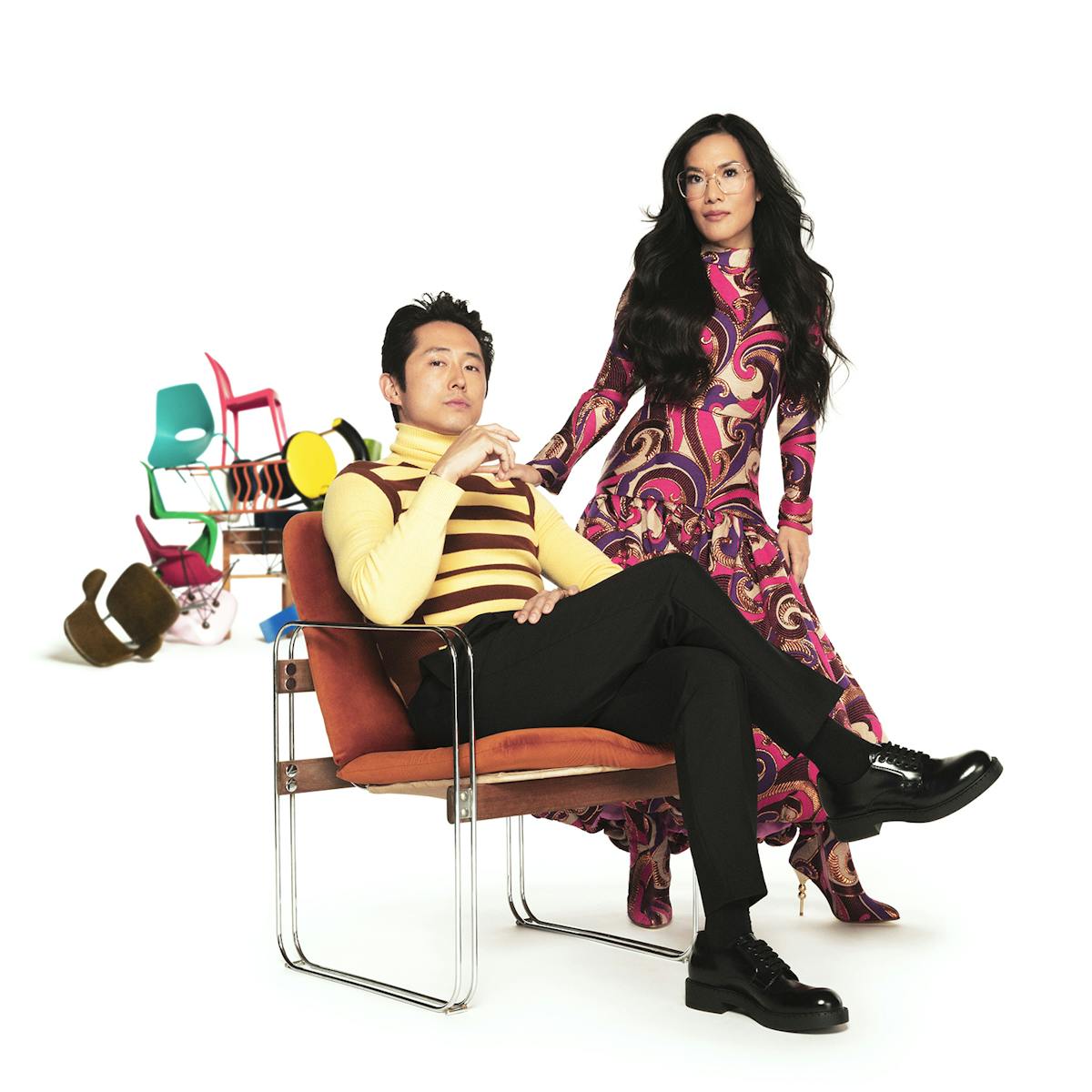Lucas Englander stood on a red carpet in Berlin, taking in the atmosphere at a special screening of Transatlantic, the World War II drama series in which he plays German refugee Albert Hirschman. For the cast and crew, who spent months in and around Marseille, France filming the piece of historical fiction based on Julie Orringer’s novel The Flight Portfolio, the screening was a celebration and the close of a chapter. “I notice now when I look at the photos from the red carpet that I am happy and I’m smiling in some of them, but there’s something in my face that tells another story,” says Englander. “And I had to realize: It is that the story of this is over.”
While the act of creating the series has come to an end, for global audiences, the journey into the world of Transatlantic has just begun. The story is based on real-life heroes Varian Fry, Mary Jayne Gold, and Albert Hirschman who, working with the Emergency Rescue Committee, ferried notable artists and intellectuals living in Europe to safety in the United States, as the Nazi regime took control of country after country. Along the way, they managed to shepherd civilians to safety, too, first in cargo holds on ships leaving Marseille and eventually by foot through the Pyrenees.
Englander, who is 30, was drawn to the script penned by Unorthodox’s Anna Winger and Daniel Hendler not only because of the exquisite storytelling, but also because of a personal connection. “When I got the script, I was already incredibly excited because I knew what this was going to mean to me,” says the Austrian-born actor, who’s appeared in Catherine the Great, The Witcher, and Appearances (which earned him a nomination for the Revelations Award at the Césars). “My grandfather was only a quarter Jewish but was seen as Jewish enough to have problems. And he himself tried to assassinate Hitler. I’m very grateful to my mom, because she brought that back to my mind, how close this actually is, and how this has influenced her spirit of never giving up and of always believing in the defense of justice, which she has given to me. And so, through this trickle down, I felt very connected to the time that Albert is living through.”
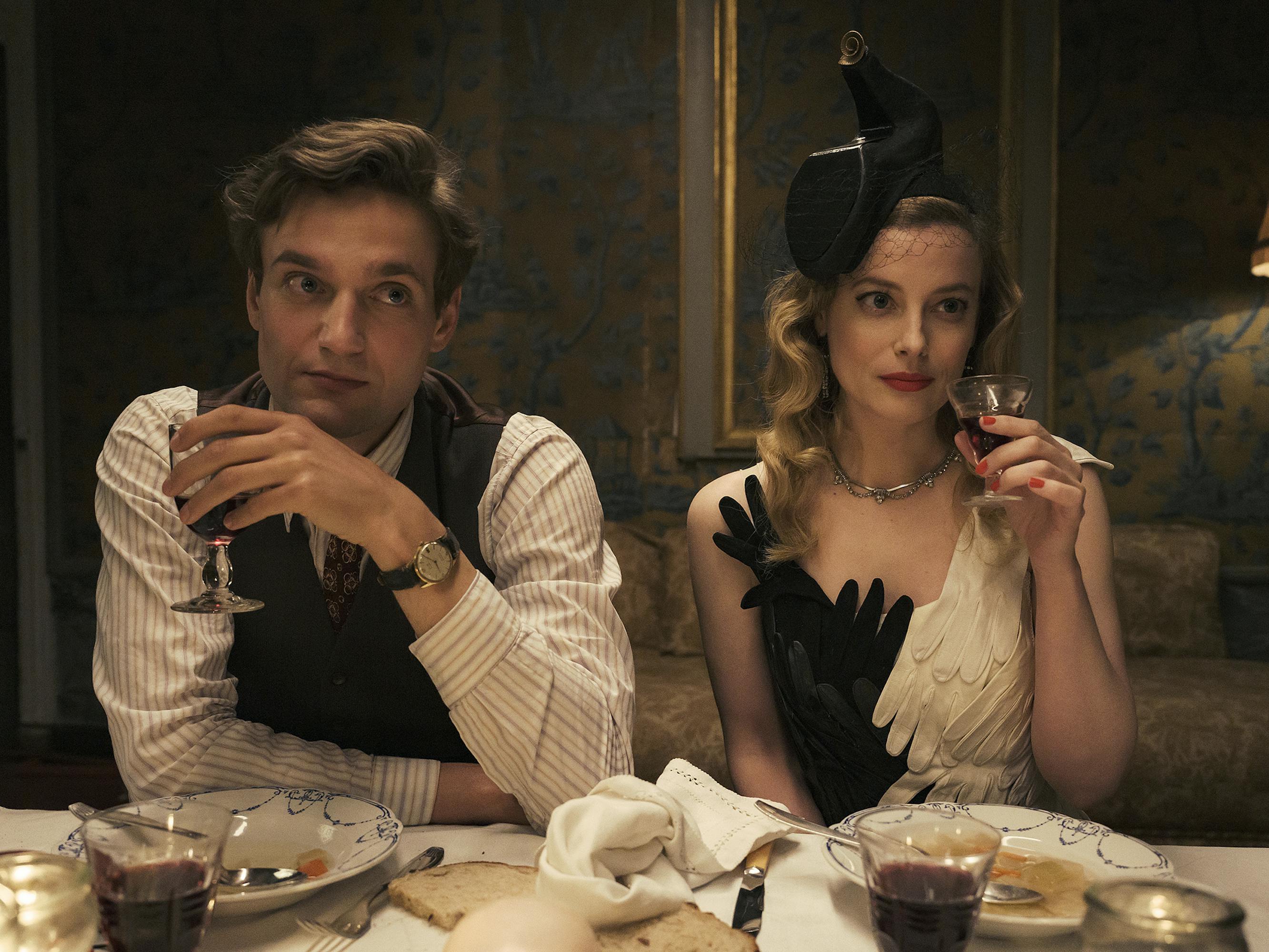
Albert Hirschman (Lucas Englander) and Mary Jayne Gold (Gillian Jacobs)
It was his mother who Englander first opened up to about his interest in becoming an actor. “I had my first desire to become an actor when I was 19. I had a little bit of a troubled youth when it came to just not knowing where I was and not knowing who I wanted to belong to. One day, my music teacher at high school, out of nowhere, chose three people to do an improvisation together. She took me aside and whispered in my ear to do an improvisation about substance abuse and to ask the other two for help. I suddenly was overcome by the rush of facing an honest reality that wasn’t clear to me. I felt like I was speaking the truth for the first time since my childhood years. I think as children we speak the truth all the time, but then we lose it.” Englander went home from school and told his mother that instead of continuing the path he’d been pursuing, one of becoming a diplomat and entering politics, he instead wanted to pursue acting. Her response was simple: “I knew it.”
“When I told my mom, who’s coming from the artistic side of the family, I think she was, to a certain degree, relieved because she’s such a truthful person. She noticed that I am fine with tapping into something that can become my truth. My dad comes from a family where life wasn’t easy. He worked his entire life to be able to try to provide, and after I said that I want to become an actor,” he said, ‘I always wished that I could be an artist or that I could study history, but I just didn’t have the courage. I needed safety and security.’"
Englander took his opportunity and traveled across the sea to New York, where he studied at the prestigious Stella Adler Studio of Acting, then to London where he performed in Off West End stage productions. When he found himself returning to Vienna, he was given advice, or as Englander calls it, “a big slap” from celebrated German actor and father of a close friend, Wolf Roth. “He said, ‘Lucas, you’re going to lose yourself. And by losing yourself, you’re going to become one of those pretenders who’s never going to make it in any form in this world,’” recalls Englander. “And then he said, ‘But if you want to, we can now work on two monologues for a week, and we will film you, and we will film you again, until we feel like there is a grain of truth in what you say.’ And that really was the beginning because then, suddenly, I wasn’t intellectualizing, Oh, now I’m an actor and I’m cool, and I’m going to be important to the world. Suddenly it was just like, Oh, this is all that I can talk about. This is what I know. I can grow, but this is what I know.”
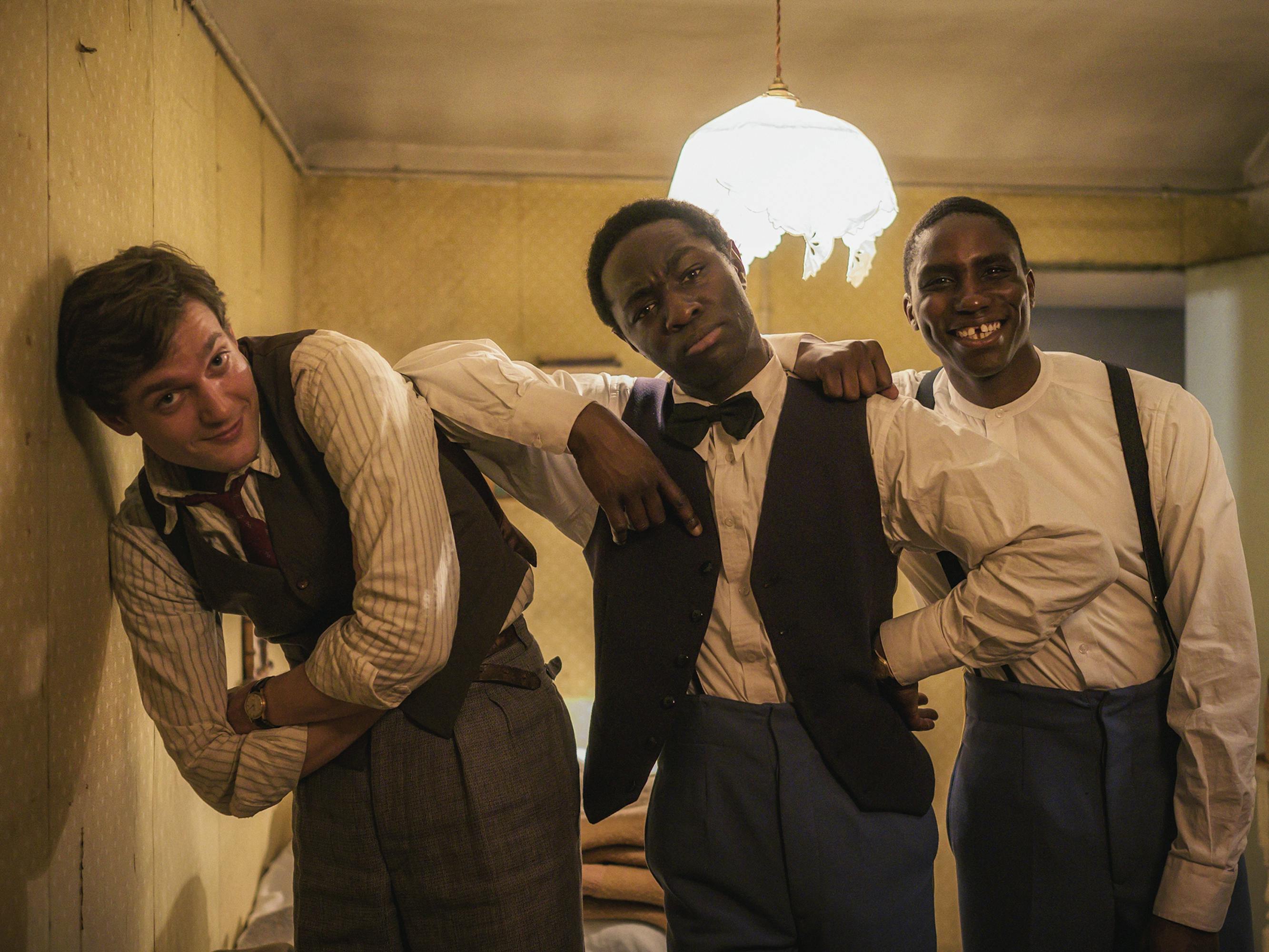
Albert Hirschman (Lucas Englander), Paul Diallo (Ralph Amoussou), and Jacques "Petit" Kandjo (Birane Ba)
Englander has no fear of the truth now, as he looks back on his early career. “I started out as an extra, and I had my first role with two lines, and then three, and then four, and then I was cut out of movies because I was terrible and I didn’t understand what the directors wanted from me. I worked. I worked alone in my room for hours a day reading books and just trying things out. I did workshops, took classes, helped everybody I could when they needed someone to learn lines with or do a self-tape. I learned a lot about just letting go. And over time, that happened more and more. I had my first bigger roles, and then my third lead, second lead, first lead.”
Transatlantic brings Englander a role sure to garner attention globally. His character is based on Hirschman, who, after escaping Europe during WWII, taught at Yale, Columbia, Harvard, and Princeton; became an influential economist; and worked for the Federal Reserve Board in America. Englander had a trove of materials to use to prepare for the role, however the actor was keenly aware that he was playing a fictionalized version of the man as a 25-year-old refugee, not years later when he’s become a leading economic figure. “I didn’t want to go too far into the future because he’s done so much afterwards, so many incredible projects to counter poverty and to help create a socially sustainable world. I didn’t want to tap into that too much. So the only one that I really tapped into was his book, Exit, Voice, and Loyalty, which describes the way that you, as an employee, could face your employer in case you’re not happy with the employee-employer relationship. From what I’ve heard, this writing is very much connected to his experience in Marseille and his experience as a person who needed refuge, but also as a person who was fighting back and who wanted to fight for [his] continent, his home, or for freedom in whatever way possible,” says Englander. “And so I prepared through that book; I prepared through various documentaries on the Emergency Rescue Committee, as also through writings on immigration and asylum in today’s times. I stopped in Hirschman’s autobiography after the moment when he left Marseille, because I just really felt like as much as I am inspired by these [later] moments and his writings, I wanted to be as naive to [that in] this moment as he was. It’s such an extraordinary situation to be in.”
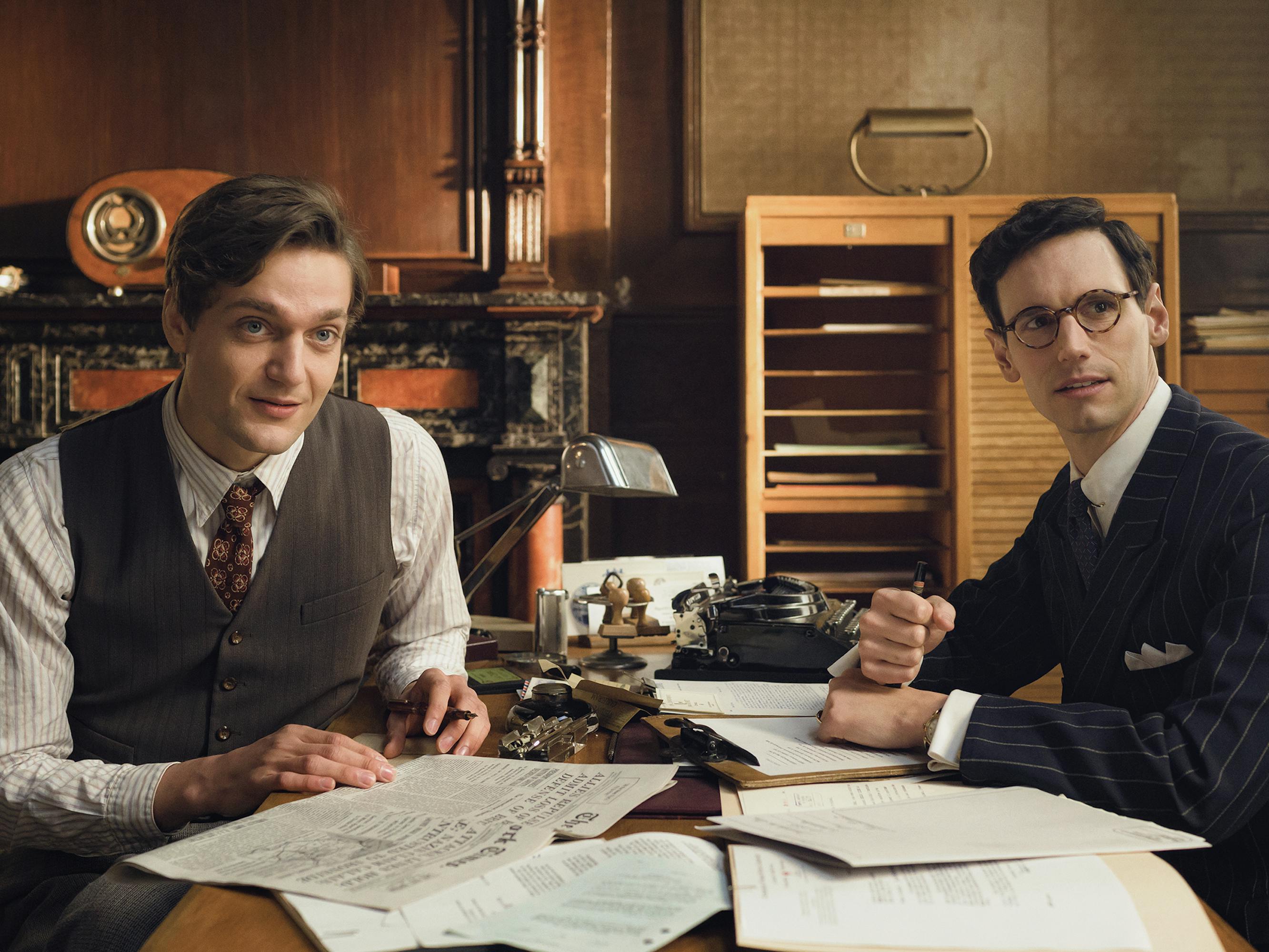
Albert Hirschman (Lucas Englander) and Varian Fry (Cory Michael Smith)
On set in Marseille, Englander grew close to his multinational ensemble cast, which included actors from the U.S. (Gillian Jacobs, Corey Stoll, Cory Michael Smith); Israel (Amit Rahav); Switzerland (Deleila Piasko); and France (Ralph Amoussou). “We became a family,” he says. “As simple as that. We became a family and we were all working hard. Ralph and I were friends from before, so we met up very early on in the preparation process and were rehearsing together almost every day, just talking about the characters, talking about our relationship, and therefore also bonding more as friends. That played a big part in it. Then, in Marseille, we shot for five months, so we all started living there and we were a group. I could say that I miss them every day, but I’m trying not to be nostalgic of such things, so I’m just happy that I met them, that I have them in my life.”
When Englander gathered with his fellow castmates in Berlin for the special screening, that feeling of the end of a chapter was present, but so too was the spirit of Hirschman, which will live on in Englander as he finds new experiences. “There’s a sentence Albert Hirschman says, which is, ‘Full and complete knowledge is not a necessary precondition for action,’ which to me is this place of, It’s okay to dare. It’s okay to fall. It’s okay to go again, and act, and to accept yourself where you are right now. And then there’s the other side, which is, You’re not alone. And even if you feel like it, then say it in whatever way you can. Try to find listening in yourself and also in others. Dare to do, even though you will never have full knowledge. This is this energy that continues to live on in me.”
